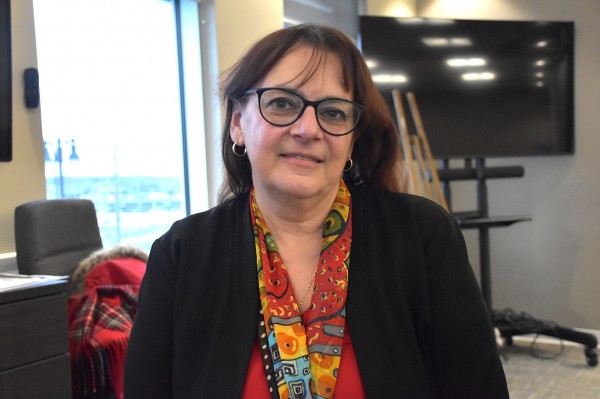
Corrine Béguerie, Ph.D., research expert at EDI2. (Photo Claudia Collard)
“An unconscious bias is a shortcut our brain takes based on all the information we have gathered throughout our lives. We don’t do it on purpose, but sometimes it can have a significant impact,” suggests Corrine Béguerie, research expert at the EDI2 Institute (Equity, Diversity, Inclusion and Intersectionality).
As Ms. Béguerie passed through the MRC du Granit on February 22, she gave an interview to L'Écho after completing a training session with elected officials and representatives of organizations and organizations on the topic of “Unconscious bias and inclusive practices.” The doctor of industrial relations followed an invitation from Promotion des Estriennes to create a new social justice organization (Pépines) responsible for this activity.
The environment in which we were raised and educated, as well as our reading and other learning, contribute to the mental shortcut we call unconscious bias. “When we have to make a decision, when we have to implement an action, we need an answer quickly and the brain sends us that answer based on all the information we have collected,” explains the one whose research interests focus on this in particular Integration of immigrants and EDI in the workplace.
Corinne Béguerie argues that first impression distortion is a good example of a mental shortcut. “When someone walks into a room, you get your first impression of that person for a whole host of reasons: because you think they're beautiful, not beautiful, because they're a black person, because they…” I'm in a wheelchair… what whatever. The first image you have of this person will lead you back to a thought or a stereotype. When it comes to an interview, we know that first impressions can influence us. For this reason, we will have interview grids that allow us to be free of unconscious biases, we will weight certain criteria and ensure that people's competence is as objective as possible.
Therefore, we can change our behavior by becoming aware of our unconscious biases. We still have to deal with it. “The environment is really important. When we are surrounded by a certain degree of homogeneity, we inevitably have less opportunity to recognize the impact of our biases. When we have a more diverse network, we are better able to question ourselves, communicate and ask questions. When we come across the difference, we recognize our glasses.”
If unconscious bias can lead to discrimination, for example when a foreign surname on a CV or a degree completed outside Quebec is seen as a barrier to an interview, its effects also apply to inter-regional migration. “It is not always easy to integrate into close-knit communities. So it’s important for host environments to leverage what works well and see what we can improve.”
To ensure the participation of newcomers in activities to promote their settlement, Ms. Béguerie points out that they must be included in the process. “We must try to bring together in an organizing committee representatives of all parties involved, including those targeted by the activity, so that they can express their views.”
As in several regions, the attraction and especially the retention of newcomers to the territory of the MRC represents a constant challenge and there are already several means to address this challenge, to which the meeting of February 22 was added. During the training courses she gives everywhere, Corrine Béguerie says she learns a lot. “We have really nice conversations. Yes, like everywhere there is resistance, but there is also a lot of openness. I need a long way. I like these discussions because they feed my thinking as a researcher.”
